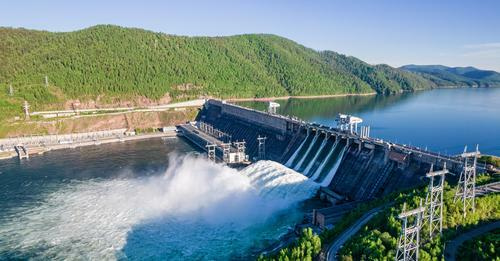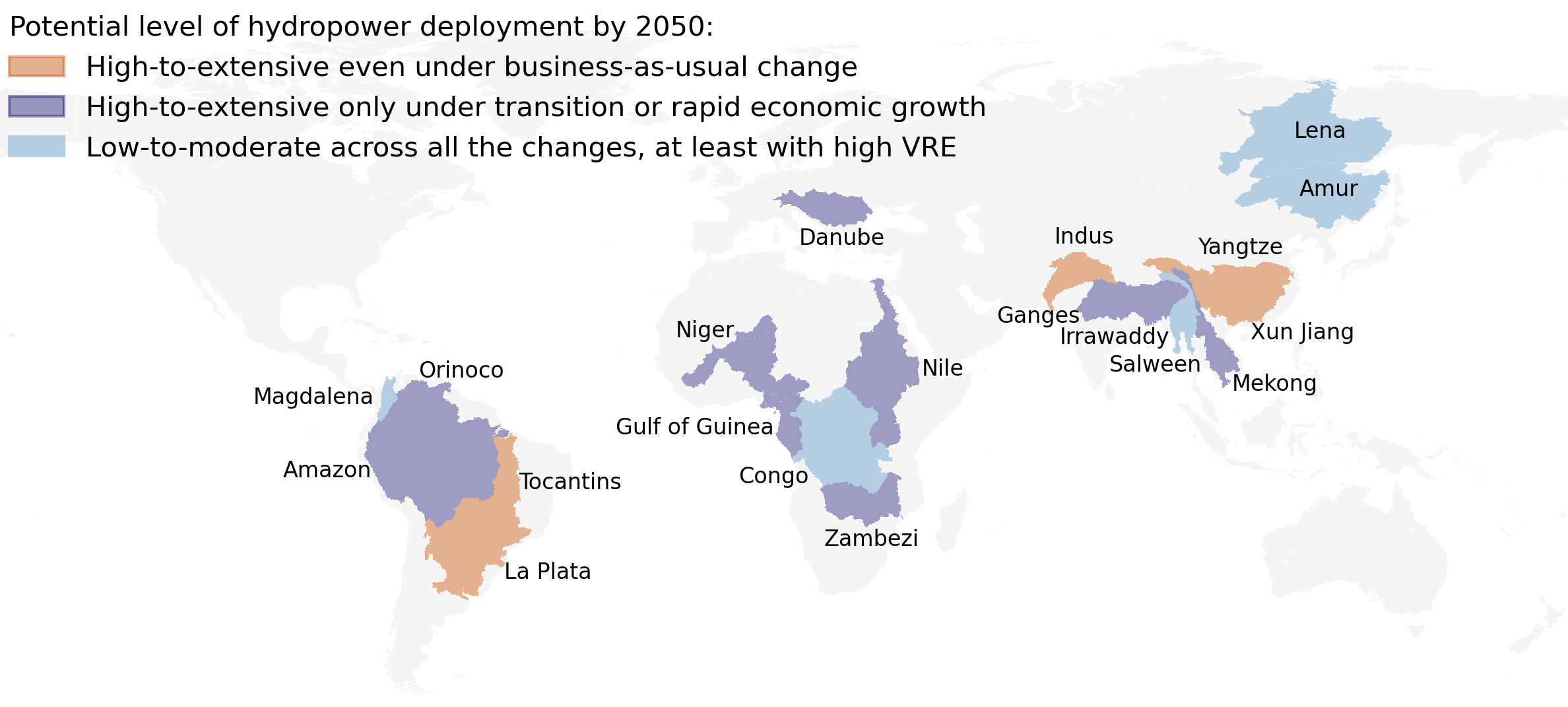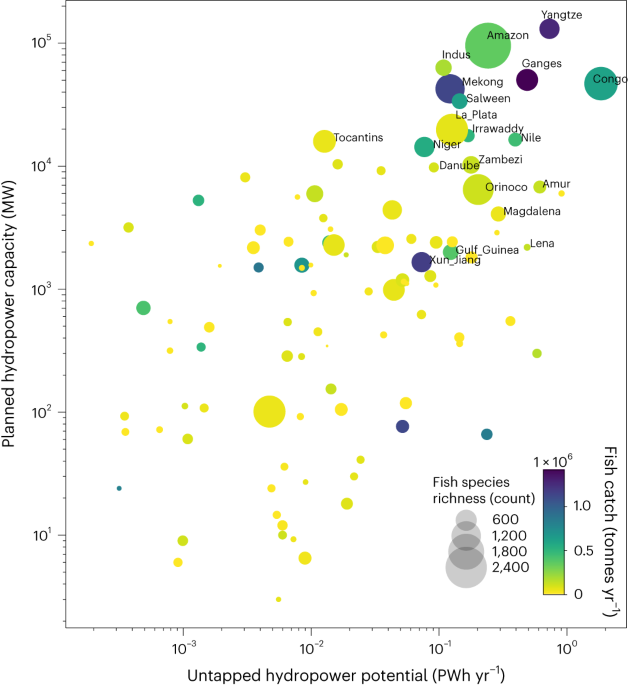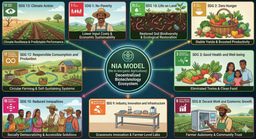Unveiling Hydropower's Future in Ecologically Sensitive Rivers in a Decarbonized World Amidst Renewables Revolution: A Balanced Perspective
Published in Earth & Environment, Ecology & Evolution, and Mechanical Engineering

Background
Hydropower is a major low-carbon energy resource with substantial untapped potential distributed predominantly across thousands of sites in socio-ecologically sensitive river basins in the Global South. On the one hand, leading energy agencies such as International Renewable Energy Agency (IRENA) and International Energy Agency (IEA) forecast significant levels of hydropower expansion, including a doubling of global capacity by 2050 to support a net-zero energy transition. On the other hand, there is a robust and high-profile body of literature demonstrating the negative socio-environmental impacts of hydropower-heavy futures, and that these impacts will be felt most acutely by the world’s most impoverished people in the Global South – who depend intimately on ecosystem services (e.g., freshwater fish catch) for their income and nutrition supply, and whose interests are under-represented in the research literature. A third strand of literature puts forth a solution: hydropower is likely to be supplanted by increasingly cheap variable renewable energy (VRE: wind and solar) resources in ecologically sensitive regions. While this idea holds promise for limiting a subset of the socio-ecological impacts associated with the energy transition, it was not quantitatively explored at a global scale from a balanced perspective that integrates these various strands of literature. In our recent paper featured in Nature Sustainability, we have provided this much-needed balanced perspective by considering not just the oft-discussed rapidly declining costs of VRE, but also how the forces of socioeconomic growth and economy-wide decarbonization may act to drive up electricity demand, and thus to dampen the steep rate at which some studies anticipate VRE replacing hydropower. We focus on the world’s 20 most ecologically sensitive river basins that are rich in both hydropower and freshwater fish resources.
Key takeaways
The balanced perspective we describe is what enabled us to discover one of our core findings: enhanced integration of VRE does have the potential to offset hydropower in some key eco-sensitive river basins (e.g., the Congo, Magdalena, and Irrawaddy), but in most basins it may not be a sufficiently large force to offset the steep upward pressure on hydropower development that will be exerted by the low-carbon energy transition. This finding is especially true in certain basins of global importance, such as the Amazon, Mekong, Ganges, Nile, and Niger, that are the focus of extensive discussions surrounding opportunities to avoid socio-environmental impacts. In addition to these two distinct groups of basins, we identify another group of basins – including the Indus, Yangtze, La Plata, and Tocantins – that could experience extensive hydropower expansion even under business-as-usual energy-economic change, indicating that the range of choices about how to develop the basin's remaining hydropower resources is more limited.

Closure
We believe that our regionally differentiated analysis will support a more nuanced discussion surrounding the future role of hydropower in different regions. Our results quantify the tradeoffs across sustainable development goals that many nations are seeking to better navigate by crafting targeted policy interventions. In particular, we demonstrate the tension that exists between reaching economy-wide decarbonization by mid-century on one hand, and protecting freshwater biodiversity and the services it creates (e.g., food and income security) on the other hand, and how the specific choices we make about renewable energy may shape those tradeoffs. In summary, the topic of our paper carries broad societal relevance, and addresses an issue that is of particularly salient concern for nations in the Global South that still have dynamic and productive freshwater resources but also have ambitious climate goals. Our findings also suggest further research is necessary regarding the viability of a long-term energy transition that is fully reliant on hydropower, wind, and solar.
Follow the Topic
-
Nature Sustainability

This journal publishes significant original research from a broad range of natural, social and engineering fields about sustainability, its policy dimensions and possible solutions.





Please sign in or register for FREE
If you are a registered user on Research Communities by Springer Nature, please sign in